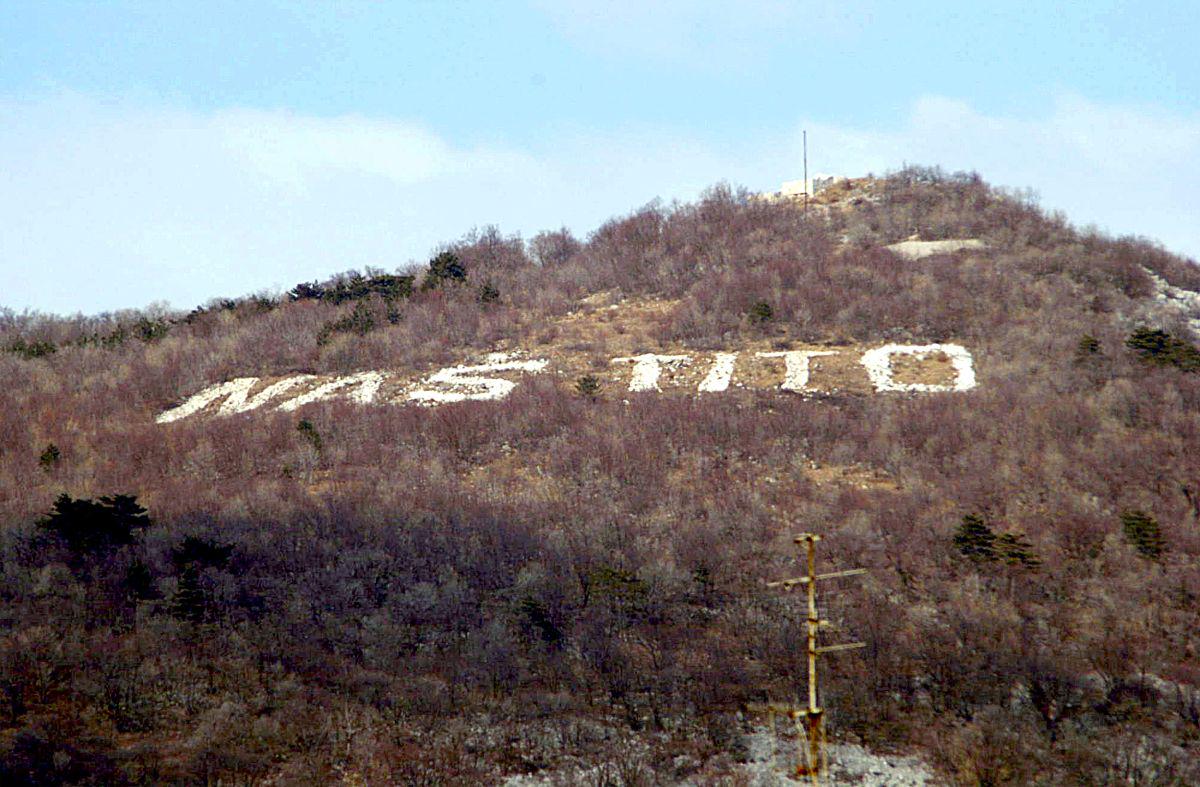
At first glance, Sabotin looks like a thoroughly unremarkable hill above the western Slovenian town of Nova Gorica. A closer inspection may reveal a composition of whitewashed rocks spelling out “Naš Tito.” in recent years, that sign has been at the center of a political firestorm.
“Naš Tito” – “Our Tito” in Slovenian, in honor of the late Yugoslav President – first made an appearance in 1947. In its present form, measuring about 100 meters in length, the letters have been around since the 1970s.
Somehow, the sign survived the collapse of Communism and the breakup of Yugoslavia. Since independence, a number of people, arguing that the sign is offensive to Tito's political victims, as well as people in nearby Italy, have called for the sign to be removed. Others, however, insists that the sign should remain as a proud reminder of Tito's role in liberating the region in the wake of World War II. The ideological battle – usually fought between members of the left and the right—has raged on for years, often with humorous consequences.
Each side has taken advantage of nightfall to rearrange the rocks, much to the surprise of their ideological opponents in the morning. Ten years ago, for instance, the sign was changed to read “SLO” for Slovenia. After “Tito” made his inevitable return, someone changed it again to “Naš Fido” (“Our Fido”), presumably in honor of a cherished family pet.
The frequent, politically motivated changes to the sign led locals to dub it the “Sabotin Rolling Stones.” When protests against Slovenia’s center-right government hit the country in 2013, the sign was changed to read “Vstaja” (“Uprising”).
After years of benign neglect, when the sign became almost invisible, a group of left-wing activists recently returned to Sabotin and, accompanied by drums, torches and Partisan songs, once again restored the sign to read “Naš Tito.” It didn't last long: Just a few days later, someone changed the sign to read “JJ,” the initials of Janez Janša, who heads the center-right Slovenian Democratic Party. (“JJ” was itself quickly reverted to “Tito.”)
While the “Sabotin Rolling Stones” have proved to be perfect entertainment for Slovenia's media and the local population of Nova Gorica, the long-lasting controversy is also an indication of just how ideologically divided Slovenia remains 70 years after World War II pitted brother against brother in the country’s bloody civil war.

































































